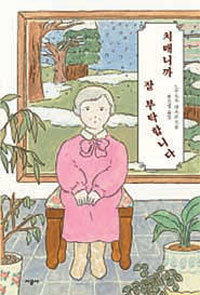How this family deals with dementia
How this family deals with dementia
Posted August. 14, 2021 07:13,
Updated August. 14, 2021 07:13

The daughter’s diary was a little longer than usual. She told her mother that she would visit today but the mother didn’t seem to understand. After they hung up, she got a call. “Is it today that you are coming?” The daughter’s diary that day started like this, “Something is wrong with Mom.”
An uninvited guest called dementia came to this normal family. At first, the father and the daughter didn’t know what to do and got flustered. Her mother suffered the most as a dementia patient. When she realized that something has changed, she kept crying and repeated that she became senile and needs to die to avoid being a burden to the family.
The family had to accept life changes caused by the dementia of the mother whether they like it or not. The daughter decided to shoot funny but sad moments, rather than denying or avoiding the new situation. A few years later in 2017, the mother who has a self-deprecating sense of humor gave greetings for the New Year by saying, “Please take good care of me as I have dementia this year.” The footage shot by the daughter was made into a documentary film and screened in 2018.
The book contains a cheerful story of caregiving by the daughter and the father for the mother who has dementia. The writer is a freelance video director who shot her own caregiving experience in 2007 as a self-documentary. She wrote about moments and anecdotes uncaptured on camera and the emotions she felt. The father who never held a kitchen knife before but became a homemaker in his 90s for his wife and little arguments between the two are depicted in a loving way.
The writer takes a step back and contemplates. She empathizes with Charlie Chaplin’s quote, “Life is a tragedy when seen in close-up, but a comedy in long-shot,” and also says that dementia is kindness granted by God for us to prepare for a long goodbye as it slowly changes Mom. The mother was later taken into a nursing home as her dementia got worse. The writer talks of love in her family without being overly emotional by saying that her family members have always cared about each other. Even now, whenever the daughter visits her mother whose dementia has progressed, her mother shouts out her name loudly, “Naoko!”
pep@donga.com



![17년 망명 끝에, 부모 원수 내쫓고 집권[지금, 이 사람]](https://dimg.donga.com/c/138/175/90/1/wps/NEWS/IMAGE/2026/02/18/133376197.3.jpg)



